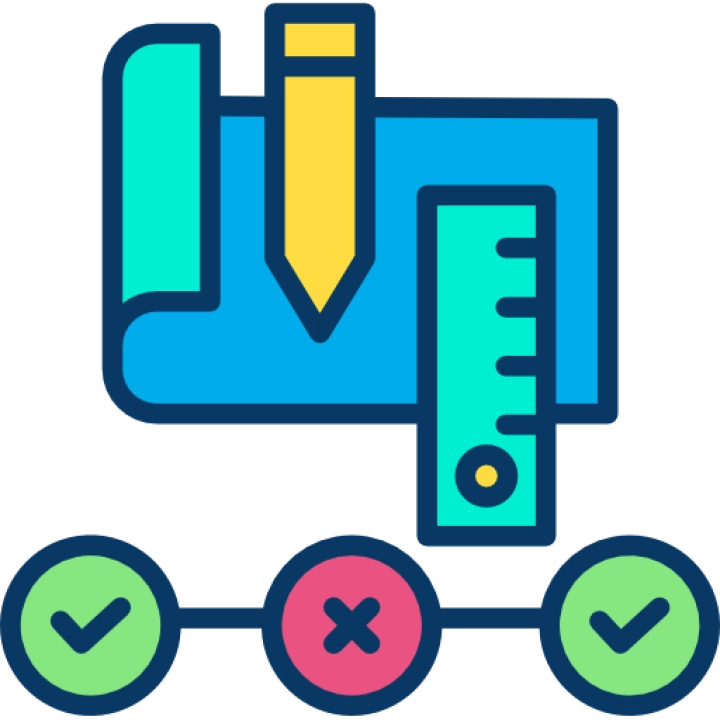College: Educational Programs
The Educational Design and Evaluation major focuses on the principles and practices of designing, developing, and evaluating educational programs, curricula, and educational materials. Students acquire skills in instructional design, curriculum development, evaluation, educational technology, and research methods, preparing for careers in teaching, educational design, curriculum development, educational research, and related fields.
Learning Objectives:
- Understand the principles of instructional design and evaluation.
- Develop skills in instructional design and curriculum development.
- Learn evaluation and assessment techniques.
- Explore and integrate educational technology into learning environments.
- Analyze research methods in education.
- Develop critical thinking, problem-solving, and analytical skills.
- Gain practical experience through projects and internships.
Main Course Outline:
- Introduction to Instructional Design and Evaluation - Overview of the principles of instructional design and evaluation, their history, and current trends.
- Instructional Design - Fundamentals of designing effective educational materials and programs.
- Curriculum Development - Principles of developing and implementing educational curricula.
- Evaluation and Assessment - Techniques for evaluating and assessing educational programs and student learning.
- Educational Technology - Integrating technology into educational environments and educational design.
- Research Methods in Education - Methods for conducting and evaluating educational research.
- Learning Theories and Models - Explore learning theories and apply them to educational design.
- Teaching Strategies - Techniques for delivering effective teaching in diverse educational settings.
- Educational Policy and Leadership - Understanding educational policies and leadership within educational organizations.
- Cultural and Social Contexts of Education - Analyzing cultural and social factors affecting education.
- Practical Training - Practical experiences in educational institutions, curriculum development organizations, educational research firms, or related environments.
- Capstone Project - A comprehensive project applying instructional design and evaluation skills such as curriculum development, designing an educational program, or conducting an educational research study.
Evaluation Methods:
- Analysis of instructional design and evaluation principles
- Instructional design projects
- Curriculum development projects
- Evaluation and assessment projects
- Educational technology projects
- Research methods projects
- Learning theories and models projects
- Teaching strategies projects
- Educational policy and leadership projects
- Cultural and social contexts of education projects
- Practical training reports
- Capstone projects and presentations
Recommended Textbooks:
- "Introduction to Educational Design and Evaluation"
- "Instructional Design"
- "Curriculum Development"
- "Evaluation and Assessment"
- "Educational Technology"
- "Research Methods in Education"
- "Learning Theories and Models"
- "Teaching Strategies"
- "Educational Policy and Leadership"
- "Cultural and Social Contexts of Education"
Prerequisites:
Basic knowledge of educational principles and psychology, with an interest in instructional design and evaluation.
Program Duration:
The program typically spans 4 years for a bachelor's degree in Instructional Design and Evaluation.
Certification:
Graduates may obtain certifications such as:
- Certified Instructional Designer (CID)
- Certified Educational Technologist (CET)
- Certifications in specific educational programs and technologies
Target Audience:
Aspiring educational designers, curriculum developers, educational researchers, teachers, and professionals seeking careers in educational institutions, curriculum development organizations, educational research firms, and related fields.
This major equips students with the design, evaluation, and research skills needed to excel in instructional design and evaluation, supporting careers in various roles within educational institutions, curriculum development organizations, educational research firms, and related fields. The program offers comprehensive education in the principles of instructional design, educational design, curriculum development, evaluation, educational technology, research methods, learning theories, teaching strategies, educational policy, cultural contexts, and practical experience through internships and projects, preparing students for successful careers in this field.

